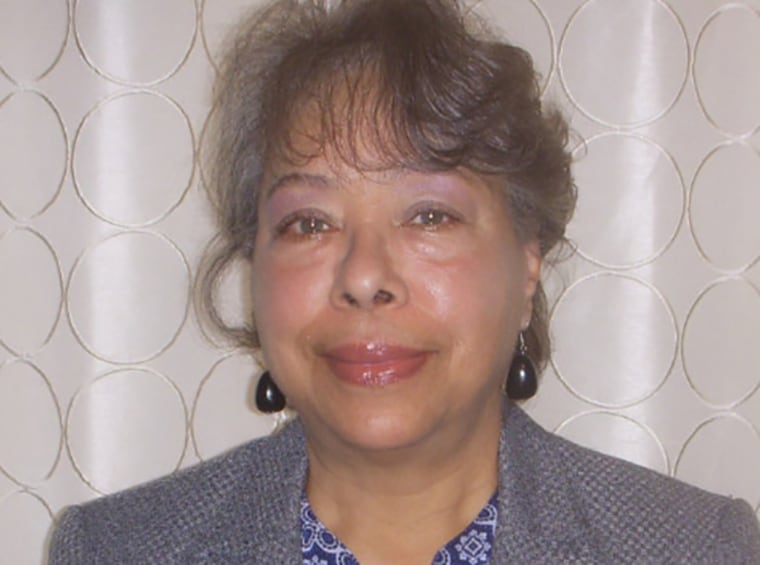It didn’t sit well with Michael Tidwell when an appraisal report he submitted for a large commercial property in a predominantly Black neighborhood in Los Angeles was rejected by a bank reviewer who insisted the lot was valued too high.
Tidwell, a Black appraiser who is also a valuation and advisory director at the global real estate services firm Cushman & Wakefield, said it took months of back and forth, with the issue getting escalated to the bank’s top brass, before they ultimately agreed with his initial assessment.
“The reviewer didn't respect the community because he felt like, ‘Oh, it's a Black neighborhood. It's crime-ridden and violence and all of that. There's no way this place is going to be able to make money,’” he said. “It’s frustrating because even when you do your job or you may know the value of the community, somebody that's not from that community, a lot of times, they're not going to see the value.”
Tidwell is in a unique position on the inside of a tiny and largely insular appraisal industry of 78,000 whose membership is more than 85 percent white, with less than 2 percent of appraisers identifying as Black.
The appraisal industry continues to be criticized for racially based bias against Black homeowners, like in the case of a Black Indianapolis homeowner who after concealing her race received an appraisal value of more than double that of two previous appraisals where her race was known, according to the Fair Housing Center of Central Indiana, a nonprofit that filed a housing discrimination on the woman's behalf. The three assessments were performed by different companies with the first two coming in at $125,000 and $110,000 and the third coming in at $259,000 after she had a white friend pose as her brother.
But Black appraisers have also encountered difficulties navigating similar issues from inside the industry. Many say that while the valuation divide is symptomatic of a larger racial issue, addressing challenges and barriers in a profession with an apprenticeship model — which makes it difficult for people of color to break in — may be one way to widen the industry lens.
Racially based appraisal bias is a well-documented and pervasive issue that has long contributed to the widening wealth gap for Black families, and much of it has been driven by “historical racialized appraisals that influence contemporary values and appraisers’ racialized assumptions about neighborhoods to drive appraisal method,” according to a study published in the journal Social Problems.
The study found that from 1980 to 2015 homes in white neighborhoods appreciated almost $200,000 more than comparable homes in similar communities of color.
A different study by the Brookings Institution in 2018 found that in the average U.S. metropolitan area, “homes in neighborhoods where the share of the population is 50 percent Black are valued at roughly half the price as homes in neighborhoods with no Black residents,” and that there is a level of “implicit bias” in an individuals’ perception of members of an oppressed class. The study also found that the “value of assets — buildings, schools, leadership, and land itself — are inextricably linked to the perceptions of Black people.”
It was around 70 years ago when the appraisal industry opened up to African Americans, said Jacob Faber, a professor of sociology and public service at New York University. So there is a not-so-distant history of fairly explicit racial exclusion that not just purposefully kept African Americans and other people of color out of the appraisal industry, but also hampered the ability of African Americans to own property.
Since there are so few Black appraisers, it's not clear what impact diversity would have on the industry, Faber said, but he added that other research on the benefits of diversity in institutions does suggest that it could help alleviate some of the racial bias in individual appraisals even though there are bigger structural problems with the way that homes are appraised.
The apprenticeship model blocks diverse applicants
After sending out nearly a hundred résumés to potential mentors who could provide her with the training hours required to become a certified appraiser, Jillian White remembers one response very clearly.

A senior appraiser asked White, who is based in New York City, to come to his office right away to interview after telling her how impressed he was with her credentials. But his excitement quickly faded as soon as he saw a Black woman, White said, adding that she was not even allowed past the office’s threshold by the appraiser who turned her away, saying she was overqualified.
“It’s been tricky. I feel caught in the middle when I hear about appraisals coming in low for Black homeowners,” said White, who is now the head of collateral for the digital mortgage lender Better. “There are a multitude of different factors that play into this, including a deeper history of how we attach value to property in the first place, but there are also very few outside voices in the appraisal industry that can help re-examine opinions on property value.”
The appraisal industry, which has kept a very guarded gate for entrants, is largely based on an apprenticeship model that requires anywhere from 1,000 to 3,000 hours of work under a supervising appraiser to become certified.
The onus of finding a mentor is on the student, which has generally led the industry to become intergenerational and homogeneous, causing a bottleneck preventing diverse talent from breaking in, White said. There isn’t much incentive for a supervisor to take on an apprentice, especially when that person is a stranger, she said.
“As appraisers, we know there is a level of artistry and discernment when it comes to appraising,” she said. “There is some discretion given to an appraiser, so the industry being open to reconsidering how we think about this is important if we want to address some of the bias.”
Junia Howell, assistant director at Boston University’s Center for Antiracist Research, who co-wrote the study in the Social Problems journal, said the appraisal industry is one of the last remaining fields that relies on an apprenticeship model.
“Those fields have been some of the most racially segregated fields because they rely on people knowing people to get an apprenticeship or to get in, and then having a one-on-one relationship where they're being followed for a long period of time,” she said. “So when there's large socioeconomic and racial divides between those people, you can imagine that there's a lot of reasons why even if someone has a chance to get into an apprenticeship, maybe they just decide not to finish it, or maybe there's some dissonance there.”
While diversifying the industry isn’t the only or even biggest approach to addressing bias, Howell argues that diversity is part of what needs to happen.
A lack of geographic competency in the industry
Kathy Allen-Gray, a Black appraiser, has been practicing in Kansas City, Missouri, for over 20 years. In that time she has performed dozens of appraisal rebuttals for Black homeowners who she feels received grossly undervalued appraisals.
Much of the basis of these rebuttals is the idea that the appraisers assigned were not geographically competent, she said.

“We have people who have no understanding of a neighborhood come into neighborhoods of color and they make their own assumptions. There are differences within Black neighborhoods, just like there are differences within white neighborhoods, and if you don't know the neighborhoods, you really shouldn't be in them, and you should not be making valuations, period.” she said.
While Allen-Gray does not say that Black appraisers should only be appraising communities of color, she believes it is vital to have an understanding of what you are valuing, and that comes from wider perspectives.
“There is a responsibility upon appraisers that if they take an assignment that they are not geographically competent in, they are to disclose up front. And if they say they are competent then they have to show what steps they took to become geographically competent.”
There is a lack of specialized local knowledge not only in appraisals but in the real estate industry as a whole, said Faber, who studies spatial inequality. There should be a greater value put on that skill set because you have people appraising neighborhoods and properties that they don't really have any familiarity with, he said.
Rising awareness of racial bias
Despite years of stagnation and even a failure to recognize the problems that exist within the real estate industry, there has been some movement on the issue of home appraisals.
Last week the Biden administration unveiled new federal steps to help narrow the racial wealth gap, including addressing racial bias in home appraisals. Secretary of Housing and Urban Development Marcia Fudge is set to lead an interagency initiative to address inequity in home appraisals.
A statement released by the White House last week stated that “the effort will seek to utilize, quickly, the many levers at the federal government’s disposal, including potential enforcement under fair housing laws, regulatory action, and development of standards and guidance in close partnership with industry and state and local governments, to root out discrimination in the appraisal and homebuying process.”
The increased scrutiny has also prompted the Appraisal Institute, the nation's largest professional association of real estate appraisers, to acknowledge the issue of racial bias within the appraisal industry.
“When we see even one story of a consumer who feels they were treated differently because of their race, it’s very concerning because that goes against everything we stand for. Appraisers take a lot of pride in being an objective source of real estate value information,” Rodman Schley, the institute’s president, said in a statement to NBC News.
“Over the last two years, the Appraisal Institute has been amplifying and accelerating internal initiatives and partnerships to bring about positive change, including improving diversity within the profession. We recognize that recruiting for greater diversity will make us stronger and more representative of the communities we work in and contribute to greater cultural awareness.”
Despite the promises, it is still too early to see if these efforts will actually create any level of systematic change and diversification within the field, said Howell, who is closely studying these initiatives. These were just introduced, so time will tell if they have any teeth, she added.
But Tidwell and other Black appraisers say it’s been promising to see stories of race-based bias finally come to light because this has been an issue they have grappled with inside the industry and have seen it affect people outside the industry for years.
“There has been a bunch of momentum and energy out there in the industry to create a more diverse and inclusive environment. They are attempting, where before there wasn’t even an attempt,” he said. “And at the end of the day, all you can ask for is that people don’t just turn a blind eye.”